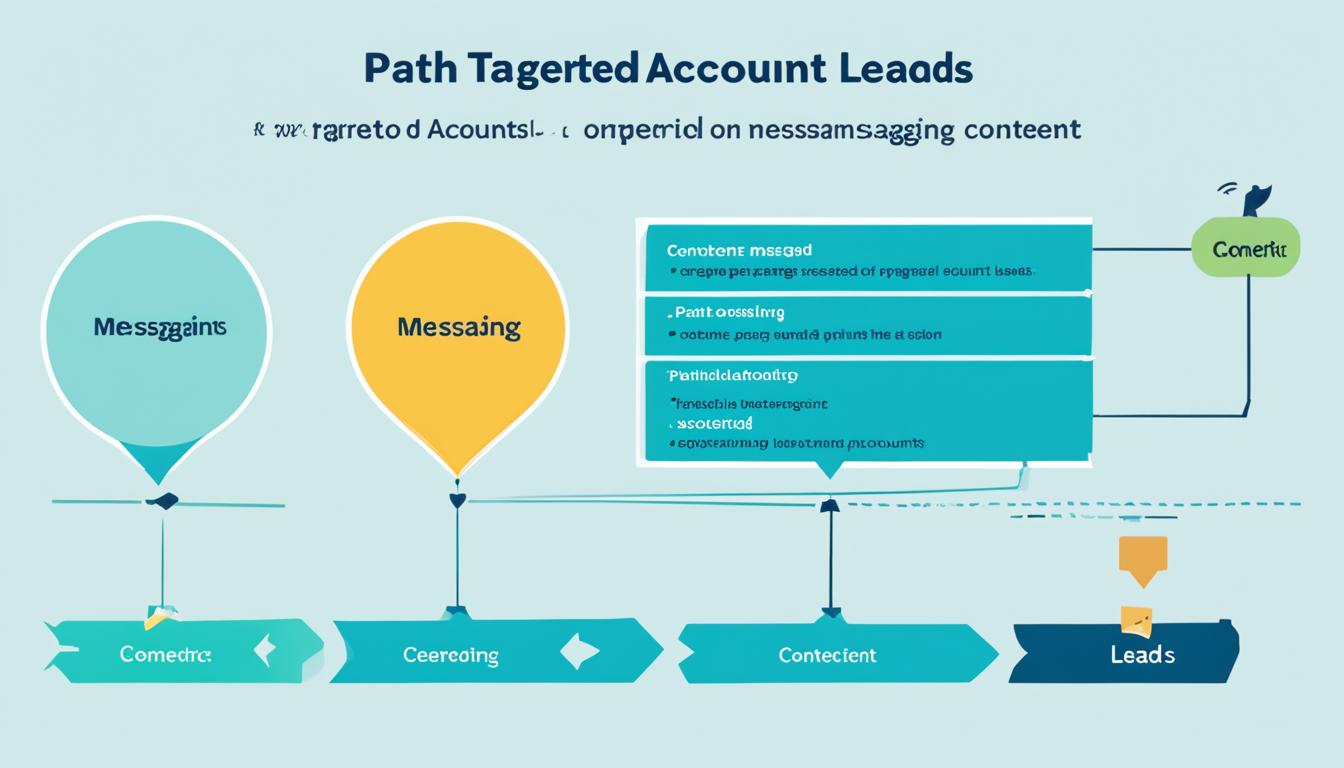An affiliate marketing sales funnel is a tool used to define the steps a customer takes before making a purchase in affiliate marketing. It helps businesses narrow their focus and turn leads into customers. Affiliate marketing is a successful business model used by around 81% of businesses. A sales funnel helps affiliate marketers build a customer base, track their success and efforts, and prepare for the future.
Key Takeaways:
- An affiliate marketing sales funnel is a crucial tool to guide potential customers through the buying journey and convert leads into customers.
- Affiliate marketing is a widely adopted business model, utilized by approximately 81% of businesses.
- A sales funnel enables affiliate marketers to establish a customer base, track their marketing efforts, and plan for future success.
Why Use an Affiliate Marketing Sales Funnel?
An affiliate marketing sales funnel is an essential tool for affiliate marketers looking to build a strong customer base and track their success. By implementing effective funnel strategies, affiliates can improve their conversion rates and optimize their marketing efforts. Let’s explore why using an affiliate marketing sales funnel is crucial for success.
Conversion Funnel Optimization
An affiliate marketing sales funnel allows for conversion funnel optimization, ensuring that potential customers are guided through each stage of the funnel. By strategically designing the funnel stages, affiliates can lead potential customers through a series of steps that build trust, address objections, and ultimately motivate them to take action. This optimization process maximizes the chances of converting leads into customers.
Funnel Stages in Affiliate Marketing
The funnel stages in affiliate marketing consist of several key components, including awareness, consideration, decision, and action. Each stage plays a crucial role in moving potential customers through the funnel and driving conversions. By carefully crafting content and offers specific to each stage, affiliates can effectively engage and nurture leads.
Effective Funnel Strategies for Affiliates
To make the most of an affiliate marketing sales funnel, affiliates should employ effective funnel strategies. This includes targeted marketing and segmentation, allowing affiliates to tailor their message to specific audiences. By understanding their target demographic and creating personalized content, affiliates can increase engagement and drive conversions.
Additionally, incorporating lead magnets, such as free e-books or valuable resources, into the funnel can capture lead information and provide additional value to potential customers. This approach helps establish credibility and trust, increasing the chances of conversion.
Furthermore, monitoring and analyzing funnel metrics can provide valuable insights into the effectiveness of marketing efforts. By identifying areas for improvement and optimizing the funnel based on data-driven decisions, affiliates can continuously enhance their funnel’s performance and drive better results.
By utilizing conversion funnel optimization, understanding the funnel stages in affiliate marketing, and implementing effective funnel strategies, affiliates can maximize their success and achieve higher conversion rates.
Components of a Simple Affiliate Marketing Funnel
A successful affiliate marketing funnel is composed of four crucial components: content, opt-in page, thank you page, and presell landing page. Each component plays a significant role in guiding potential customers through the buying journey and maximizing conversions.
1. Content
In the world of affiliate marketing, content is key. It serves as the initial touchpoint with potential customers, introducing them to the affiliate products and capturing their interest. High-quality blog posts, articles, and reviews provide valuable information, addressing customers’ pain points and showcasing the benefits of the products being promoted. By offering informative and engaging content, affiliates can build trust and establish authority within their niche.
2. Opt-in Page
The opt-in page is an essential element of the affiliate marketing funnel, as it allows affiliates to capture leads and build a mailing list. This page should entice visitors to provide their contact information, such as their email address, in exchange for valuable resources. Lead magnets, such as free e-books, checklists, or exclusive content, incentivize visitors to opt-in. By building a mailing list, affiliates can nurture leads and establish ongoing communication with potential customers.
3. Thank You Page
The thank you page acts as a bridge between the opt-in page and the presell landing page. It serves as a confirmation for visitors who have successfully opted-in, expressing gratitude for their interest and trust. Additionally, the thank you page offers an opportunity to provide immediate value to visitors by offering a download link or access to lead magnets promised on the opt-in page. This page can also convey the benefits and features of the main affiliate product, encouraging readers to take the next step.
4. Presell Landing Page
The presell landing page is where the magic happens. It provides potential customers with detailed information about the affiliate product, addressing their pain points and highlighting the unique selling propositions. This page should include persuasive copy, testimonials, social proof, and a compelling call-to-action. The goal is to convince readers that the affiliate product is the solution they’ve been looking for and motivate them to make a purchase or take the desired action.
Types of Affiliate Marketing Funnel
When it comes to affiliate marketing funnels, there are three main types that affiliate marketers often utilize: course funnel, webinar funnel, and book funnel. Each of these funnels serves a specific purpose and can be effective in generating interest and driving conversions for affiliate products.
1. Course Funnel
A course funnel involves offering a low-priced or discounted course to capture the attention and interest of potential customers. This type of funnel is particularly effective for affiliates who want to establish themselves as experts in their niche and build trust with their audience. By providing valuable training or educational content through the course, affiliate marketers can showcase the benefits and value of the main affiliate product.
2. Webinar Funnel
A webinar funnel utilizes free or low-priced webinars to engage with potential customers and promote the affiliate product. Webinars are an excellent way to provide valuable information, demonstrate the product’s benefits, and address any concerns or objections. By offering additional training or exclusive offers during the webinar, affiliate marketers can drive conversions and build a loyal customer base.
3. Book Funnel
A book funnel offers a free book to customers, where they only pay for shipping. This type of funnel leverages the perceived value of a physical book to generate interest in the main affiliate product. The book serves as a lead magnet, capturing the contact information of potential customers and allowing affiliate marketers to further nurture and engage with them through email marketing campaigns. This funnel strategy builds trust and positions the affiliate marketer as an authority in the niche.
By understanding the different types of affiliate marketing funnels and their applications, affiliate marketers can choose the best funnel strategy for their specific goals and target audience. Whether it’s through a course funnel, webinar funnel, or book funnel, the key is to provide value, build trust, and guide potential customers towards making a purchase.
Best Affiliate Marketing Sales Funnel Builders
When it comes to building effective affiliate marketing sales funnels, two standout platforms are Systeme.io and Clickfunnels. These powerful programs provide all the necessary tools and features to streamline your online marketing efforts and drive sales. Let’s take a closer look at each of these top-ranking funnel builders:
Systeme.io
Systeme.io is a comprehensive program designed to meet all your online marketing needs, including funnel building. With its user-friendly interface and intuitive drag-and-drop builder, you can easily create high-converting funnels tailored to your affiliate marketing goals.
Key Features of Systeme.io:
- Drag-and-drop funnel builder
- Email marketing automation
- Lead capture forms and landing pages
- Membership site creation
- CRM and sales tracking
Systeme.io provides a range of templates and customization options, allowing you to create unique and visually appealing funnels to attract and convert your target audience. With its all-in-one solution, you can streamline your marketing efforts and maximize your affiliate commissions.
Clickfunnels
Clickfunnels is a leading sales funnel building software trusted by successful entrepreneurs in various industries. It offers a range of features and integrations to help you create highly optimized funnels that drive conversions.
Key Features of Clickfunnels:
- Intuitive drag-and-drop builder
- A/B testing for optimization
- Payment gateway integration
- Email and marketing automation
- Membership site functionality
With Clickfunnels, you have access to a vast library of funnel templates designed to cater to different industries and goals. Its user-friendly interface and seamless integrations make it easy for both beginners and experienced marketers to build successful affiliate marketing funnels.
Whether you choose Systeme.io or Clickfunnels, both platforms offer the necessary tools and features to help you create high-converting sales funnels for your affiliate marketing campaigns. Explore their capabilities and find the one that best suits your needs and business objectives.
Benefits of Using an Affiliate Marketing Funnel
An affiliate marketing funnel offers several benefits that can greatly enhance your marketing efforts and drive better results for your business. With the ability to target and segment your audience more effectively, you can improve the overall effectiveness of your promotions and increase conversion rates.
One of the key advantages of using an affiliate marketing funnel is better targeting. By tailoring your marketing messages to specific segments of your audience, you can reach the right people with the right offers at the right time. This not only increases the relevance of your campaigns but also enhances the chances of conversion.
Segmentation is another crucial benefit of utilizing an affiliate marketing funnel. By dividing your audience into distinct groups based on demographics, interests, or behaviors, you can create personalized experiences and targeted messaging for each segment. This level of customization not only strengthens your relationships with customers but also improves the likelihood of conversion.
Furthermore, an affiliate marketing funnel helps build customer loyalty and encourages repeat purchases through post-conversion engagement. By nurturing leads and providing valuable content, you can keep customers engaged and interested in your products or services long after the initial purchase. This ongoing relationship building can lead to increased customer lifetime value and ultimately higher revenues.
In summary, by utilizing an affiliate marketing funnel, you can achieve better targeting and segmentation, which ultimately leads to improved conversion rates. This strategic approach to marketing allows you to connect with the right audience, deliver personalized messaging, and build lasting customer relationships.
Steps to Build an Affiliate Marketing Funnel
Building an effective affiliate marketing funnel involves five key steps: creating awareness, attracting leads, nurturing leads, converting leads, and optimizing the funnel.
- Creating Awareness: To create awareness for your affiliate marketing funnel, utilize SEO-optimized content to drive organic traffic, implement targeted social media marketing campaigns to reach potential leads, and consider investing in paid advertising to expand your reach.
- Attracting Leads: Attract leads by offering valuable lead magnets such as e-books or cheat sheets in exchange for their contact information. Incorporate opt-in forms and newsletter sign-ups on your website to capture leads effectively.
- Nurturing Leads: Use email marketing to nurture your leads. Provide valuable content, personalized recommendations, and exclusive offers to establish trust and keep your leads engaged. Implement automated email sequences to deliver timely and relevant messages.
- Converting Leads: To convert leads into customers, ensure that your funnel provides comprehensive information about the affiliate products, builds trust through social proof and testimonials, and addresses any objections or concerns your leads may have.
- Optimizing the Funnel: Continuously optimize your affiliate marketing funnel by analyzing data, testing different approaches, and making small tweaks to enhance conversions. Stay up-to-date with industry trends and incorporate new strategies and technologies to improve your funnel’s performance.
To visualize the steps involved in building an affiliate marketing funnel, refer to the table below:
| Steps | Description |
|---|---|
| Creating Awareness | Utilize SEO-optimized content, social media marketing, and paid ads to create awareness. |
| Attracting Leads | Offer lead magnets, opt-in forms, and newsletter sign-ups to attract leads. |
| Nurturing Leads | Implement email marketing and provide valuable content to nurture leads. |
| Converting Leads | Deliver comprehensive information, establish trust, and address objections to convert leads into customers. |
| Optimizing the Funnel | Analyze data, make small tweaks, and stay updated with industry trends to optimize the funnel. |
The Power of Lead Magnets in Affiliate Marketing
Lead magnets are a powerful tool for capturing leads in affiliate marketing. By offering valuable resources such as free e-books, cheat sheets, or templates, affiliate marketers can entice potential customers to provide their contact information in exchange for these valuable assets.
Lead magnets serve multiple purposes in the affiliate marketing funnel. First and foremost, they act as a gateway to capturing leads. When visitors opt-in and share their email addresses, affiliate marketers can then nurture these leads through email marketing campaigns.
How Lead Magnets Capture Leads
Lead magnets act as a hook to capture visitors’ attention and incentivize them to take action. When a lead magnet offers valuable and relevant content, it positions the affiliate marketer as an expert and builds trust with potential customers.
For example, providing a free e-book that offers insights and solutions to common challenges in a particular niche provides immense value to the reader. In order to receive the e-book, the reader must provide their email address, which the affiliate marketer can then use to send targeted email campaigns.
Segmentation and Targeted Email Marketing
Once leads are captured through lead magnets, affiliate marketers can segment their email list based on specific interests, preferences, or demographics. This segmentation allows for targeted email marketing campaigns, personalized to the unique needs and desires of each segment.
By delivering highly relevant and tailored content to each segment, affiliate marketers can increase engagement and conversions. Segmentation also helps prevent email fatigue by ensuring that subscribers receive content that is of interest to them, leading to higher open rates and click-through rates.
Providing Consistent Value
In order to maintain a strong relationship with leads, it is essential for affiliate marketers to consistently provide value. Lead magnets, such as regular newsletters, exclusive content, or discounts, can help affiliate marketers stay top-of-mind with their audience and keep them engaged.
By consistently providing valuable content, affiliate marketers can establish themselves as trusted authorities in their niche and position their affiliate products as the solution to their audience’s needs. This value-driven approach fosters long-term relationships with leads and increases the likelihood of conversions.
Lead magnets are an integral part of the affiliate marketing funnel, enabling the capture of leads, segmentation for targeted email marketing, and the provision of consistent value. By implementing effective lead magnet strategies, affiliate marketers can successfully build and nurture their customer base, leading to increased conversions and revenue.
Conclusion
An effective affiliate marketing sales funnel is a powerful tool that can significantly increase conversions, boost affiliate commissions, and elevate overall marketing strategies. By leveraging an understanding of the customer journey and implementing successful funnel strategies, affiliate marketers can build thriving businesses.
One of the key advantages of using an affiliate marketing funnel is the ability to track and analyze its performance through funnel analytics. This enables marketers to identify areas of improvement, optimize their funnels, and make data-driven decisions to generate consistent revenue.
Furthermore, leveraging automation tools in the affiliate marketing funnel process can streamline operations, saving time and resources. These tools provide automation features that efficiently manage lead nurturing, email marketing, and sales tracking, allowing marketers to focus on delivering value to customers and maximizing conversions.
In conclusion, by harnessing the power of affiliate marketing funnels, marketers can unlock the potential to boost affiliate commissions, drive conversions, and optimize their overall marketing efforts. With the aid of funnel analytics and automation tools, affiliate marketers can achieve sustained success in the dynamic and competitive landscape of the digital marketing industry.


